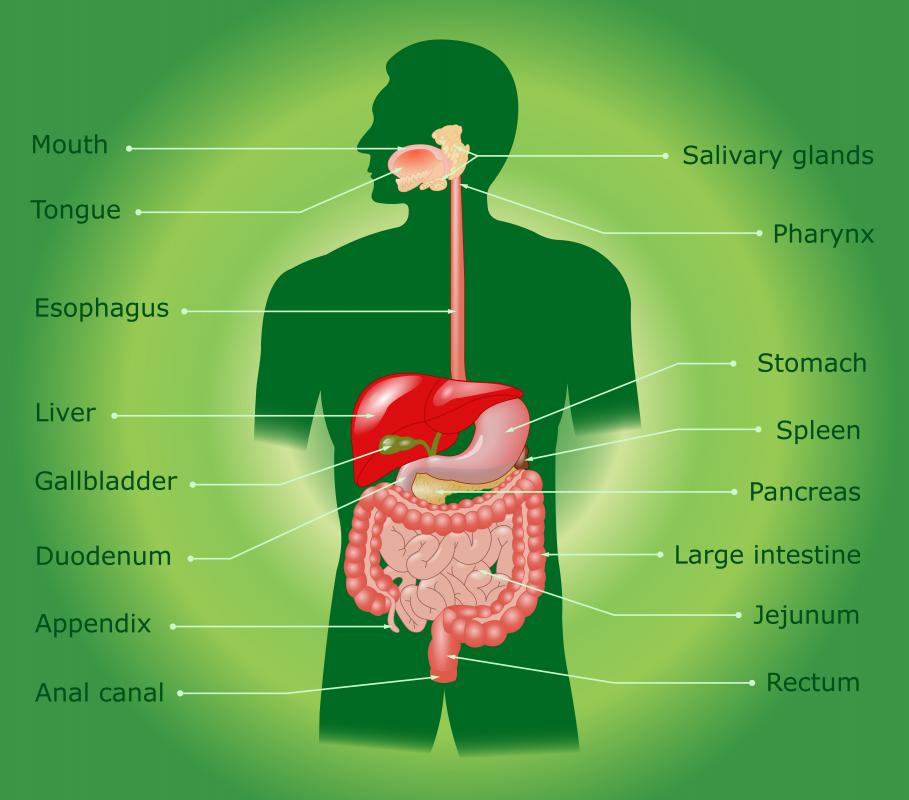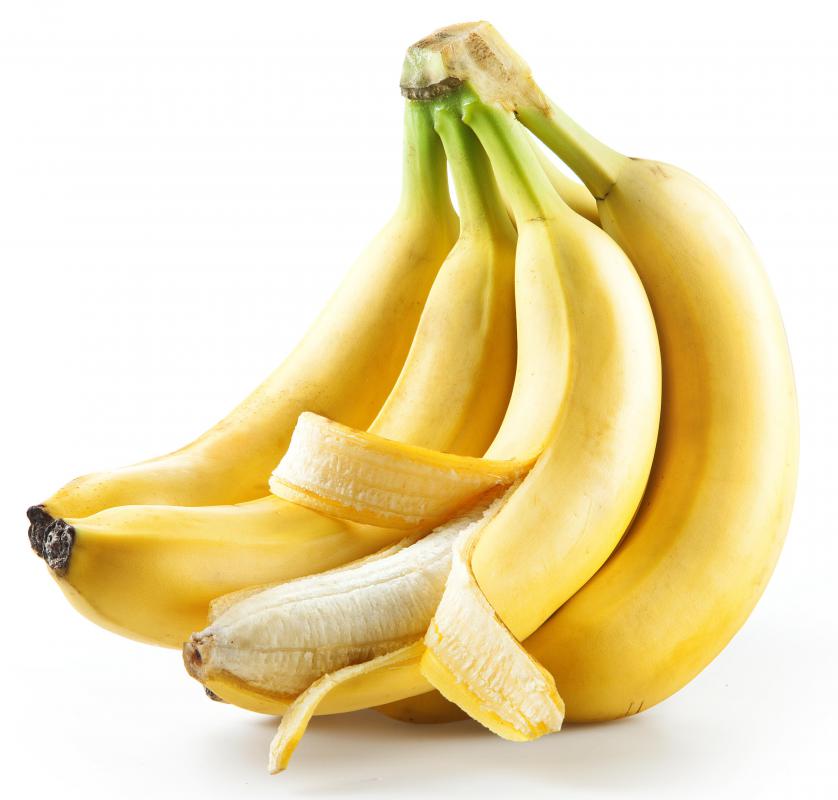At TheHealthBoard, we're committed to delivering accurate, trustworthy information. Our expert-authored content is rigorously fact-checked and sourced from credible authorities. Discover how we uphold the highest standards in providing you with reliable knowledge.
What are Digestive Enzymes?
Digestive enzymes are proteins that catalyze the breakdown of large food molecules. They break them into smaller pieces that can be more easily absorbed by cells. In humans, such digestive substances are produced by the salivary glands and in the digestive tract. Proteases, amylases, and lipases are some types of these enzymes.
The food consumed by humans starts its digestive process by being chewed and shaped by the tongue into a bolus. Through this, the salivary glands are stimulated to produce saliva, which contains a form of amylase. This enzyme is also known as ptyalin.

Salivary amylase acts on starches, which consist of a long chain of glucose molecules. It breaks this chain into smaller fragments. Eventually, it degrades these into even smaller bits. The final product is a unit of two glucose molecules known as fructose. This is then broken down and metabolized as glucose in the intestines. Glucose then enters the bloodstream, where it is known as blood sugar.

Only some of the starch is degraded in the mouth. The rest travels into the stomach with the bolus. The salivary amylase is active for a short while, until is inactivated by the stomach’s acidic pH. Most of the starch is degraded there by amylase produced by the pancreas.
Proteins are another large component of the human diet, and there are a number of different digestive enzymes that break these down. Such enzymes are known as proteases. They vary greatly in their preferred substrates, location, and characteristics. Some are active in the stomach, like pepsin. Others, such as trypsin and chymotrypsin, are produced by the pancreas and act in the intestine.

One feature all of these proteases have in common is that they are synthesized as a larger form that is inactive. This is to prevent damage to the body's tissues. When they are needed for actual digestion, however, the digestive enzymes are activated by having part of the protein cleaved off. Once activated, they break proteins down into smaller fragments called polypeptides. Enzymes called peptidases then degrade the smaller pieces into amino acids, which are absorbed by the intestine and used to replenish acids excreted as urea or used in cellular metabolism.

Dietary fats are degraded by enzymes called lipases, which are also produced by the pancreas. These digestive enzymes break down drops of fat into fatty acids and glycerol. For this reaction to be successful, it requires bile salts from the liver, which help the fat to mix with the liquid solution in the intestinal tract. It is vital that the fat be mixed in small droplets, to be properly degraded. This occurs due to contractions in the intestines.
The pancreas produces a number of other digestive enzymes as well, and is the main gland involved in digestion. It also produces nucleases, which degrade RNA and DNA to their individual components. Aside from trypsin and chymotrypsin, it produces several additional proteases. This includes carboxypeptidase and aminopeptidase, which also aid in the digestion of proteins by removing their terminal amino groups.
AS FEATURED ON:
AS FEATURED ON:














Discussion Comments
Digestive enzymes play a vital role in keeping fit for they can improve the circulation of human body.
The digestive system is quite amazing. It's a fairly detailed and long process and each step is vital. Digestive enzymes are like the workers of the system, along with friendly bacteria that also assist with break-down of foods.
Without digestive enzymes, the food we eat could not be transformed into an energy source that our cells can use. Enzymes are very small, but they do a big job.
@burcinc-- I think many digestive enzyme supplements are plant based but I'm not sure. Some people experience deficiencies in some digestive enzymes either naturally or due to a chronic health problem. That's why enzyme supplements are used by some individuals to support digestion. But there are different supplements out there with different enzymes. So it's important to do research and select the right supplement depending on your needs.
My aunt has been using an enzyme supplement since she had to have her gallbladder removed. Without a gallbladder, she is not able to digest fats properly. She is on a low fat diet but still experiences many digestive troubles and stomach pain. Digestive enzymes that break down fats have been very beneficial. Her pain is gone and she rarely has digestive discomfort now.
I've noticed that there are digestive enzyme supplements sold at pharmacies and stores. Are these enzymes the same as the enzymes our body produces for digestion? And why would someone need a digestive enzyme supplement?
Post your comments